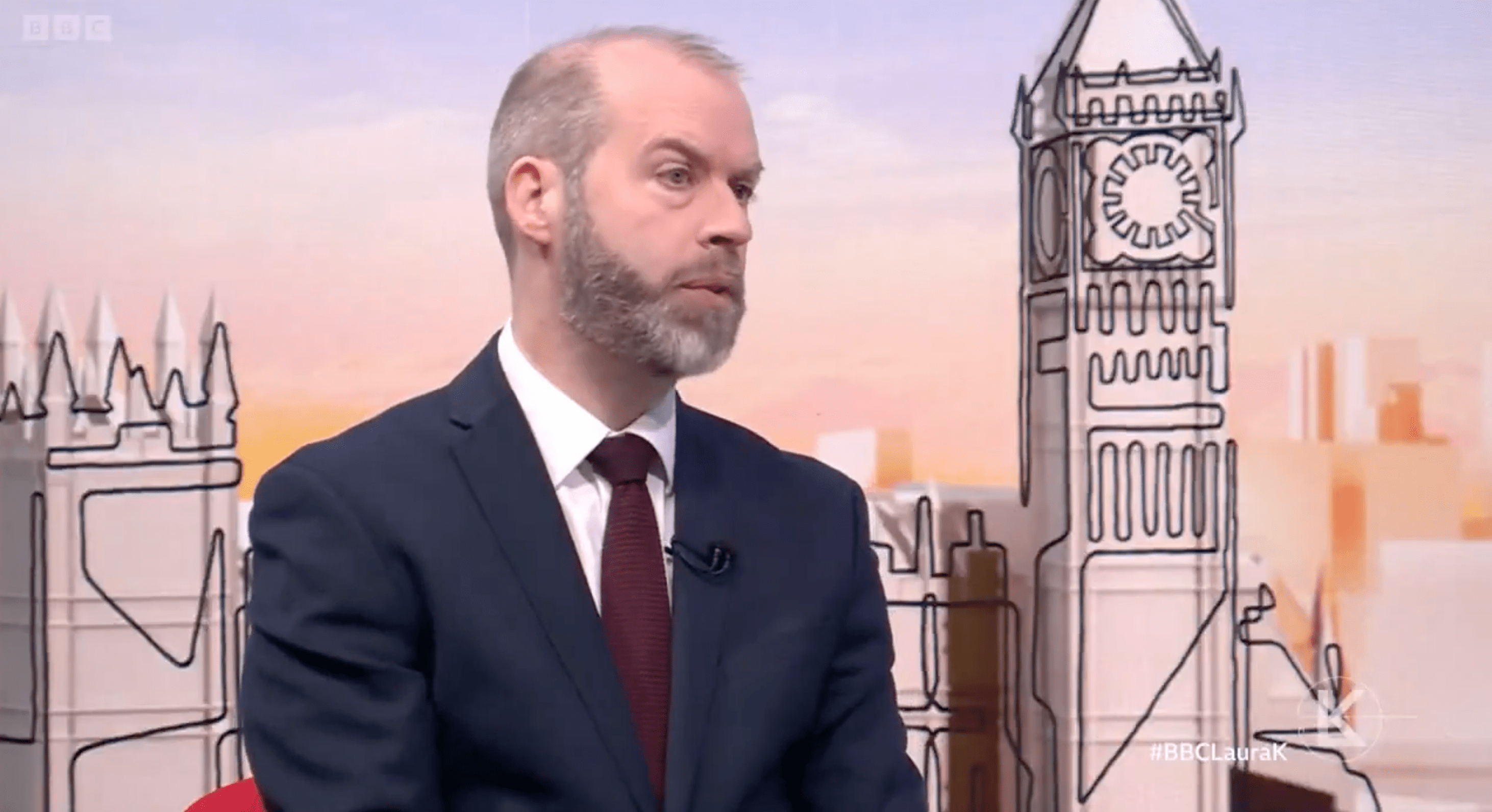Jonathan Reynolds: ‘There will be no durable peace [in Ukraine] without European partners’
Keir Starmer will meet European leaders at an emergency summit in Paris next week, after Trump appeared to be sidelining Europe in the Ukraine peace negotiations. On the BBC, Victoria Derbyshire asked Business Secretary Jonathan Reynolds why Starmer had called this a ‘once in a generation moment for our national security’. Reynolds said that ‘we should welcome the fact that the US president wants to see an end to the conflict’, but added that the peace process has to include European partners, ‘particularly the Ukrainians’. Reynolds suggested that ‘there is a reasonability’ to the US’s desire for Europe to contribute more to its own defence, and that there was no ‘fundamental breach’ between the US and its European allies.
Reynolds disagrees with US Vice President Vance over free speech claims
In a speech which shocked attendees at the Munich Security Conference, US Vice President JD Vance accused Europe of ‘retreating from some of its most fundamental values’, and argued that free speech was under threat in the UK, by referencing the arrest of a man who prayed in the safe zone around an abortion clinic. On Sky News, Business Secretary Reynolds told Trevor Phillips that this ‘was one area where we would disagree’ with the US. Reynolds added that no-one is ‘subject to any kind of enforcement from the state’ for praying in this country, and that the case Vance had referenced was about protecting people’s access to healthcare, ‘free of intimidation’.
The government rushes through £2.5bn steel investment, but is it enough?
Business Secretary Reynolds has published his ‘Plan for Steel’ green paper, weeks ahead of schedule, as part of the UK’s response to Trump’s 25 per cent tariffs on all imports of steel and aluminium into the US. On Sky News, Reynolds hinted that the UK would not retaliate against Trump’s tariffs, saying that ‘our national interest lies in free, fair, open, transparent trade rules’. On the BBC, Reynolds acknowledged that the international trading position is ‘a challenging one’, but said the most important thing was to address the UK’s ‘domestic environment’ for the steel industry, pointing out that British steel production represented only 30 per cent of the country’s demand. Victoria Derbyshire asked if Reynolds could guarantee that Scunthorpe Steelworks would stay open, where 2000 jobs are under threat. Reynolds said he was ‘in talks still with British Steel’, but admitted that moves to new technologies would lead to a ‘reduction in headcount’.
Priti Patel on the US’s Ukraine plan: ‘It’s too easy to generalise’
Victoria Derbyshire asked Shadow Foreign Secretary Priti Patel if she had an alternative to Trump’s suggestions that Ukraine gives up territory and doesn’t become part of NATO. Patel said it is ‘for Ukraine to decide its future’, and added that it is ‘early days’ to predict what the US’s actual position would be. Derbyshire asked if Patel didn’t ‘necessarily believe what President Trump… said’ about Ukraine. Patel claimed that ‘we have to understand in more detail’ how talks progress, and added that the UK and its European partners needed to continue to be strong in their support for Ukraine.
ARIA CEO Ilan Gur claims new technology could transform agriculture
And lastly, in an interview with Laura Kuenssberg, Ilan Gur explained how his scientific research agency ARIA is looking for breakthrough technologies at ‘the edge of the possible’. Gur said that food security and climate change are massive problems, and that because plants are ‘distributed across the globe… at scale’, improving them could be the answer to these issues. Gur pointed out that humans have always tried to make plants ‘do more for us’, and claimed that new technology could allow us to imagine ‘new plants… that are literally programmed… to enhance what we want nature to do’. He suggested that new plants might absorb more carbon dioxide from the atmosphere, be more drought resistant, or even contain medicine in their fruit.







Comments